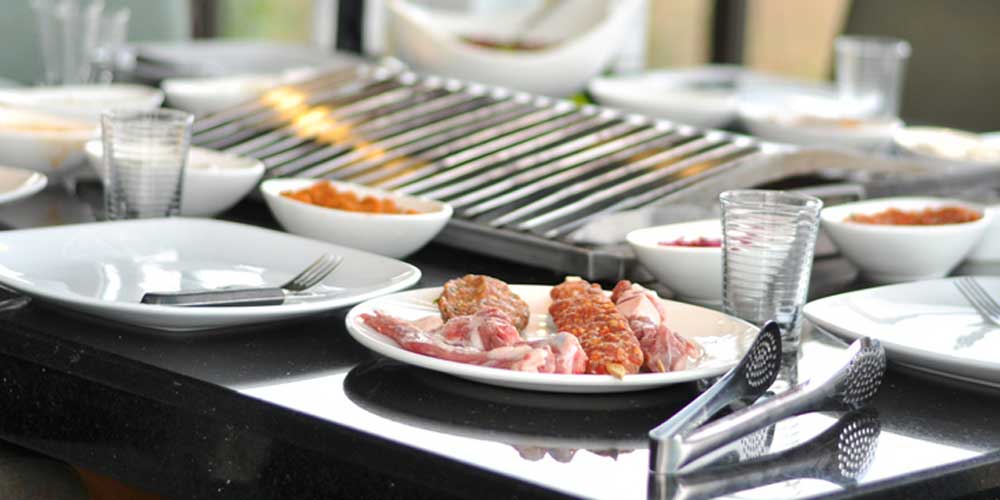
08 Jul Food Safety During Your Summer Holidays
Summer, the season of parties, cookouts, camping and barbecues. Sadly also the season of food poisoning. While enjoying the delicious meals food safety is key, we must take measures to avoid getting sick. According to the WHO, 600 million people worldwide get sick and about 420,000 people die every year from food contamination; 40% of which are children1 . Children, elderly, pregnant women and people with chronic medical conditions have been found to be more susceptible to food borne illnesses.
An essential part of our meal preparation is to ensure that we adhere to the right food safety methods. To enjoy the coming fun times without getting sick, the WHO has outlined 5 key steps to preventing food borne illnesses below:
1. Personal Hygiene: it starts with you and how you handle the food you eat. It is mandatory that you wash your hands before handling food, often during food preparation and after going to the toilet. Also, keep all surfaces and equipment used for food preparation clean and sanitized and protect kitchen areas and food from insects, pests and other animals.
2. Separate raw and cooked foods: keep raw meat, poultry and seafood separate from other foods and use different equipment and utensils such as knives and cutting boards for handling raw foods. Also, store food in separate containers to avoid contact between raw and prepared foods.
3. Cook food thoroughly: especially meat, poultry, eggs and seafood. Make sure foods like soups and stews are boiled to at least 70°C temperature and for meat and poultry, make sure that juices are clear, not pink. Ideally, use a thermometer and reheat cooked food thoroughly.
4. Know your temperatures: simply put, keep hot food, hot and cold food, cold; and avoid the danger temperature range (5°C – 60°C). Try to not leave cooked food at room temperature for more than 2 hours and refrigerate promptly all cooked and perishable foods (preferably below 5°C). Also, keep cooked food piping hot (more than 60°C) prior to serving and try not store food too long even in the refrigerator. Always thaw frozen food in the refrigerator and avoid thawing at room temperature.
5. Use safe water and raw materials: Use safe water or treat it to make it safe and consume fresh and wholesome foods. Choose foods processed for safety, such as pasteurized milk and wash fruits and vegetables, especially if eaten raw, and do not use food beyond its expiry date.



